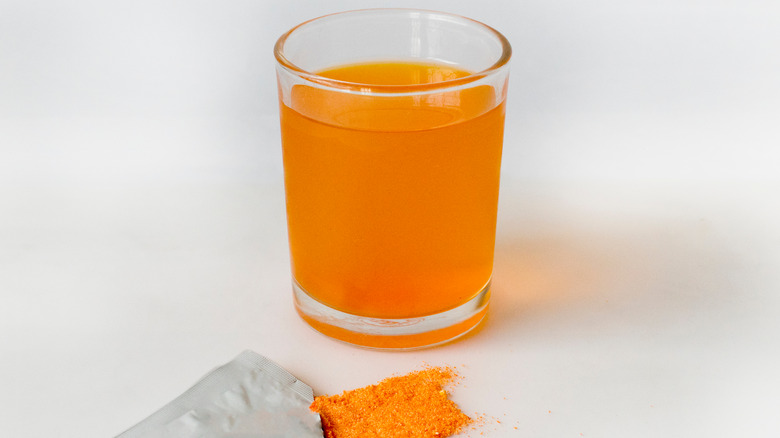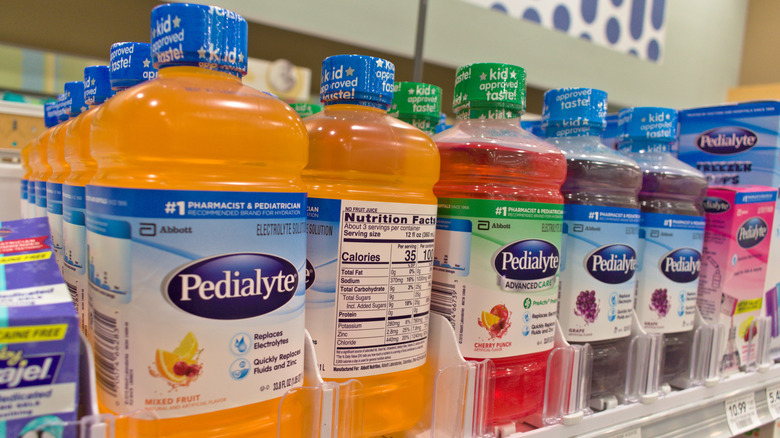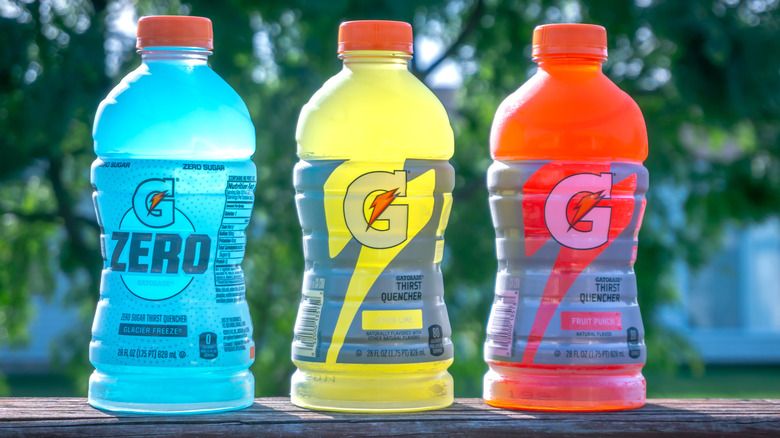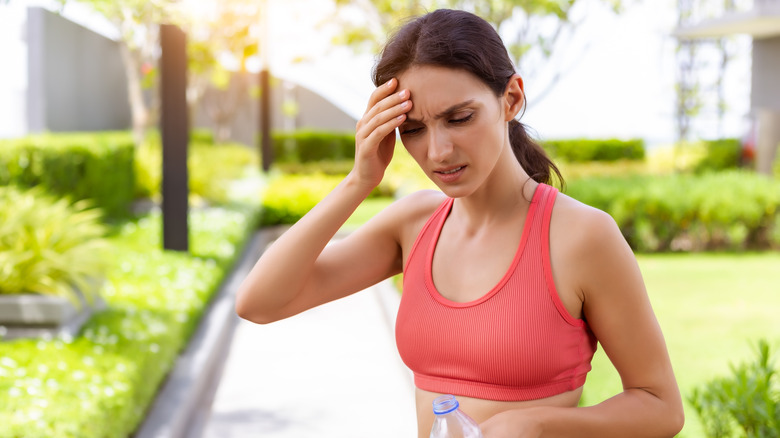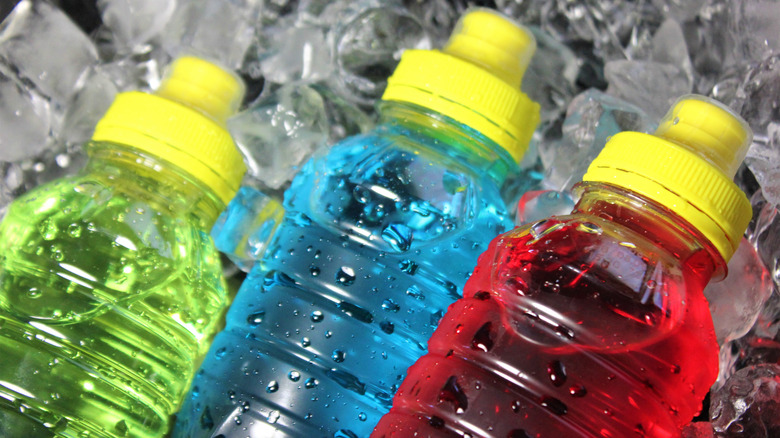The Big Difference Between Pedialyte And Gatorade
Staying hydrated is one of the easiest and most important things you can do to help keep your body healthy. That's because water and other fluids help play an integral role in your body's most basic functions. In fact, adequate hydration is crucial to the process of many essential functions, including body temperature regulation and waste removal (via Healthline). However, not drinking enough fluids can lead to dehydration.
When you're dehydrated, your body loses both water and electrolytes. This can have a negative impact on your state of consciousness and athletic performance. When it comes to preventing dehydration, however, water is not the only option. Rehydration drinks, like Pedialyte and Gatorade, can also be helpful. That's because they both can help treat and prevent dehydration by providing your body with fluids and replenishing electrolytes lost through sweat, breath, urine, or feces (via Healthline). But what exactly is the difference between the two drinks, and which one is better for you?
Nutritional comparison of Pedialyte and Gatorade
Both Pedialyte and Gatorade are made from water, sugar, and electrolytes, such as potassium and sodium, all of which are designed to help replenish your body's lost fluids. One of the main differences between the two rehydration drinks, however, is their nutritional content. According to Greatist, Pedialyte contains less sugar and calories and has a higher concentration of sodium and potassium, while Gatorade tends to have more calories and sugar and fewer electrolytes.
For instance, a 12-ounce serving of Pedialyte contains 35 calories, 9 grams of sugar, 370 milligrams of sodium, and 280 milligrams of potassium. Some types of Pedialyte drinks also contain around 2.8 milligrams of zinc and 440 milligrams of chloride. A single serving of Gatorade, on the other hand, contains 120 calories, 29 grams of sugar, 230 milligrams of sodium, and 60 milligrams of potassium. If you're concerned about your sugar intake, however, both drinks offer sugar-free alternatives.
Who are the target markets for Pedialyte and Gatorade?
While Pedialyte and Gatorade are often used interchangeably, they were both designed to hydrate different people in different situations. In fact, they are both typically marketed to separate audiences because of their slight differences in nutritional value and electrolyte content. According to Epicurious, Pedialyte is intended to help rehydrate people of all ages, including toddlers and children, by restoring the body's electrolyte balance, whereas Gatorade is recommended for adult athletes and frequent gym-goers.
That's because Gatorade is generally higher in sugar, which can help your body absorb electrolytes much more quickly and efficiently (via Epicurious). However, this doesn't mean that you can't drink Gatorade if you're not an athlete. Since both formulas can help provide adequate hydration, you can drink whichever beverage you want at any given time. It just means that one type of beverage is better suited for certain people and scenarios.
Symptoms and causes of dehydration
According to Self, dehydration is caused by insufficient water consumption and excessive water loss, which can be the result of fever, excessive sweating, frequent urination, or vomiting and diarrhea. As it turns out, losing too much water and electrolytes without replenishing them can lead to a range of unpleasant and potentially life-threatening symptoms. Some common symptoms of dehydration include headache, fatigue, dizziness, confusion, dark urine, dry mouth and skin, bad breath, and lack of sweating. In some instances, you may even get sudden food cravings and hunger pangs.
While many cases of dehydration can be remedied by drinking water and electrolyte drinks, you should seek immediate medical attention if you faint, feel like you're going to faint, or are no longer able to produce sweat. If this happens to you or someone you know, you should call 911 or go directly to the ER, where IV fluids will most likely be administered.
Pedialyte vs Gatorade: Which one is better?
Although Pedialyte and Gatorade were both created to help rehydrate the body, the two drinks each work best in certain situations. For instance, Pedialyte is better suited to help people recover from illness and hangovers (via Verywell Health). That's because Pedialyte is typically lower in sugar, which can actually worsen gastrointestinal symptoms like diarrhea. The zinc in Pedialyte can also help reduce hangovers and illness symptoms, such as headaches and vomiting.
Gatorade, on the other hand, is better suited to help people recover from sports activities and athletic training. This is largely due to Gatorade's carbohydrate content, which can help increase endurance and lower the risk of sports-related muscle cramps, per Verywell Health. You may also want to opt for Gatorade if you're looking to stay hydrated for longer periods of time. That's because the high combination of sugar, sodium, and calories can help slow down digestion, which will allow you to pee less frequently.

